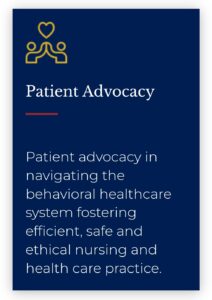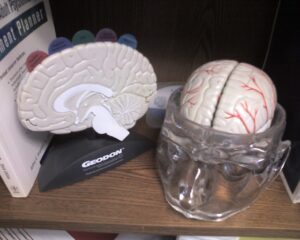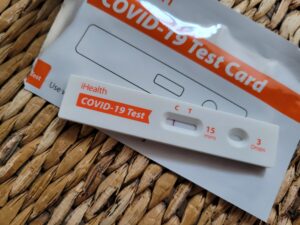I’ve posted often about defense medical exams (DMEs) proving to be a distressing experience for many already traumatized, injured individuals. The process of reliving the traumatic event, often in a clinical setting, can trigger a range of emotional responses, including anxiety, fear, and flashbacksdefense medical exams (DMEs) proving to be a distressing experience for many already traumatized, injured individuals. The process of reliving the traumatic event, often in a clinical setting, can trigger a range of emotional responses, including anxiety, fear, and flashbacks.
Lawsuits can be a lengthy and emotionally draining process. The constant back-and-forth between lawyers, multiple appointments, and the repeated retelling of traumatic events over the course of YEARS preceding the trial can take a toll on a person’s mental and physical health. As patients navigate the legal system, they often find themselves caught in a seemingly endless loop of uncertainty and contentiousness, leaving them feeling overwhelmed and exhausted.
Here are some ways injured people may be retraumatized during these exams:
* Reliving the trauma: The physical examination itself can trigger memories of the traumatic event. For example, touching a specific area of the body or discussing the circumstances of the injury can bring back painful emotions.
* Invalidation of experiences: Defense medical examiners may challenge or dismiss the injured person’s account of the trauma or their symptoms. This can be particularly harmful if the individual has already experienced a lack of belief or support from others.
Hostile or dismissive questioning: An examiner’s demeanor and questioning style can contribute to feelings of retraumatization. For example, aggressive or dismissive questioning can make the injured person feel like they are being blamed or attacked.
* Lack of empathy or understanding: If the examiner does not show empathy or understanding for the injured person’s experiences, it can exacerbate feelings of isolation and distress.
* Geographic Inconvenience: Traveling to a defense medical exam can be a significant source of stress for injured individuals. When appointments are scheduled at a great distance from the person’s home or place of work, it can involve long commutes, transportation costs, and the need to arrange childcare or other accommodations. This added burden can contribute to feelings of anxiety and exhaustion, further exacerbating the risk of retraumatization.
(Many of the patient clients I have recently accompanied have complained that they were unnecessarily sent out of their way.)
* COVID-19 Pandemic: The injuries of many of the cases in litigation now occurred a couple/few years ago, during the pandemic. The COVID-19 pandemic presented unique challenges for injured individuals seeking medical care. Restrictions on travel, social distancing measures, and concerns about exposure to the virus made it difficult to access necessary appointments. This delay in care often lead to increased pain, suffering, and emotional distress which may be mentally revisited during the defense/independent medical exam.
For only the second time in as many years, I recently met another LNC while on assignment. We connected on LinkedIn, and exchanged emails. I wholeheartedly agreed with her when she wrote, “I love attending DMEs because I feel like the ultimate patient advocate.”
Ways Legal Nurse Consultants Advocate for Patients During DMEs:
- Ensuring Accurate and Comprehensive Examinations:
- Guiding the Examination: LNCs can guide the DME to ensure that all relevant medical questions are asked and that the examiner has a complete understanding of the patient’s injuries and medical history.
- The LNC documents tools and equipment used (or not) during the exam.
- Observing for Bias: LNCs can observe the examiner’s demeanor and questioning style to identify any potential biases or inconsistencies that may affect the outcome of the exam.
- Protecting Patient Interests:
- Advocating for Patient Comfort: LNCs can advocate for the patient’s comfort during the exam, ensuring that appropriate accommodations are made and that the patient is treated with respect.
- Challenging Inaccurate Assessments: If the examiner’s assessment of the patient’s injuries or limitations is inaccurate or incomplete, LNCs can challenge these findings and provide supporting evidence.
- Providing Emotional Support:
- Offering Reassurance: LNCs can provide emotional support to the patient, helping them to feel calm and reassured during the exam.
- Addressing Concerns: LNCs can address any concerns or questions the patient may have about the exam.
By actively participating in DMEs, LNCs can help to protect patient interests, ensure that exams are conducted fairly and accurately, and provide emotional support to injured individuals during a potentially stressful and traumatic experience.













